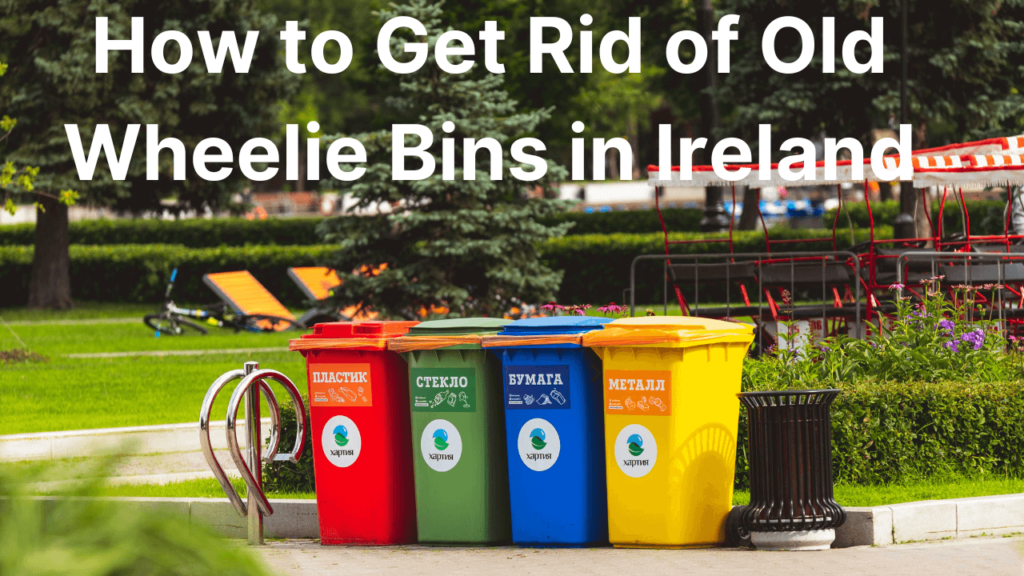Duvets are essential for a comfortable night’s sleep, especially during Ireland’s cold winters. However, when they become worn out, outdated, or you’re just decluttering, getting rid of them can be tricky. Many Irish households are unsure of how to dispose of duvets responsibly and often wonder about the best options.
In this guide, we will dive deeper into various ways to dispose of duvets in Ireland, including donation, recycling, repurposing, and upcycling, to provide you with more insights and actionable steps.
Why Proper Duvet Disposal Matters
Duvets are often bulky, and improper disposal can have several negative consequences:
- Environmental Impact: Most duvets are made with synthetic materials like polyester, which take years to decompose in landfills. Improper disposal increases the burden on landfill sites in Ireland.
- Missed Opportunities for Reuse: Many people or organizations could benefit from used duvets, especially if they are still in good condition.
- Legal Issues: Some local councils prohibit duvets from being placed in general waste bins. Disposing of them incorrectly could result in fines.
Types of Duvets and Their Disposal Options
Understanding the type of duvet you have can help determine the best disposal method.
| Duvet Material | Disposal Options |
|---|---|
| Synthetic (e.g., polyester) | Recycling centers, textile banks, repurposing for pet bedding |
| Natural (e.g., cotton, wool) | Composting (if untreated), upcycling, donation |
| Feather or Down | Donation, repurposing, or use as stuffing for cushions or crafts |
Methods to Dispose of Duvets in Ireland
1. Donate to Charities
Donating duvets to charities is a great way to give back to the community. Many organizations accept duvets to support homeless shelters, families in need, or disaster relief efforts.
Steps for Donation:
- Check the condition: Ensure the duvet is clean, free from damage, and usable.
- Wash the duvet: Make it hygienic for the next user.
- Contact local charities: Some options include:
- Saint Vincent de Paul: They often accept household items, including duvets.
- Focus Ireland: Supports homeless families.
- Irish Red Cross: May accept donations during emergencies.
Additional Tip: Call ahead to confirm whether the charity currently accepts duvets, as policies may vary.
2. Donate to Animal Shelters
Animal shelters often welcome old duvets, as they can be used for pet bedding. Even duvets that are too worn for human use can make cozy beds for cats, dogs, or other animals.
Steps for Pet Bedding Donations:
- Cut the duvet into smaller sections to make it manageable for pet beds.
- Wash the duvet to remove any dirt, allergens, or odors.
- Contact local animal shelters like:
- Dogs Trust Ireland
- ISPCA (Irish Society for the Prevention of Cruelty to Animals)
- Local veterinary clinics
Tip: Ask if the shelter has specific size or material requirements before donating.
3. Use Textile Banks
Textile banks are collection points for clothing, textiles, and sometimes duvets. These are available in many towns and cities across Ireland.
How to Use Textile Banks:
- Locate a textile bank near you. Check websites like MyWaste.ie or your local council’s site.
- Ensure the duvet meets the requirements for the textile bank.
- Place the duvet in a sealed bag before dropping it off.
Noteworthy Locations:
- Tesco car parks often have textile banks.
- Civic amenity centers in Dublin, Cork, and Galway.
4. Recycling Centers
Many recycling centers in Ireland accept textiles, including duvets. These facilities ensure that materials are repurposed, reducing environmental waste.
How to Recycle a Duvet:
- Visit your local recycling center’s website to confirm they accept duvets.
- Separate the duvet cover from the filling if possible (some centers only accept covers).
- Bring the duvet to the center during operating hours.
Examples of Recycling Centers:
| Recycling Center | Location | Contact Details |
|---|---|---|
| Ringsend Recycling Centre | Dublin | www.dublincity.ie |
| North Cork Recycling Centre | Mallow, Cork | www.corkcoco.ie |
| Galway City Civic Amenity Site | Galway | www.galwaycity.ie |
5. Upcycle Your Duvet
Upcycling is a creative way to repurpose old duvets into useful items for your home.
Ideas for Upcycling:
- Cushions or Pillows: Cut the duvet into smaller pieces and sew them into cushion covers.
- Draft Excluders: Roll the duvet and cover it with fabric to block cold drafts under doors.
- Picnic or Play Mats: Use the duvet as padding for outdoor activities.
- Quilts or Throws: Combine old duvets to make a thicker, custom quilt.
6. Composting Natural Duvets
If your duvet is made of untreated, natural materials like cotton or wool, it may be compostable. Synthetic duvets cannot be composted.
Steps to Compost a Natural Duvet:
- Remove any synthetic components, such as zippers or stitching.
- Cut the duvet into small pieces to speed up decomposition.
- Add it to your compost heap, mixing it with green and brown materials.
What Not to Do
- Don’t Burn Duvets: Burning synthetic materials releases harmful toxins into the air.
- Don’t Dump Illegally: Dumping duvets in public areas or natural spaces can result in fines and harm the environment.
- Avoid General Waste Bins: Many councils in Ireland do not permit duvets in regular household bins.
Tips for Sustainable Duvet Disposal
- Plan Ahead: When purchasing a new duvet, consider buying one made from recyclable or natural materials.
- Check Local Regulations: Waste disposal rules vary across Ireland. Always consult your local council.
- Reuse Where Possible: Before throwing away, think creatively about how the duvet could be repurposed.
Summary Table: How to Dispose of Duvets
| Disposal Method | Best For | Key Steps | Advantages |
|---|---|---|---|
| Donation to Charities | Usable duvets | Wash, check policies, drop off | Helps those in need |
| Animal Shelters | Damaged or old duvets | Cut, clean, and donate | Benefits pets and shelters |
| Textile Banks | Bulk duvet disposal | Locate, pack, and drop off | Easy and convenient |
| Recycling Centers | Worn-out duvets | Separate materials, drop off | Reduces landfill waste |
| Upcycling | Creative individuals | Cut, sew, or reshape | Promotes DIY and reuse |
| Composting (Natural Only) | Natural material duvets | Remove synthetics, compost | Eco-friendly option |
Frequently Asked Questions (FAQs)
1. Are all duvets recyclable?
No, not all duvets are recyclable. Synthetic duvets are more challenging to recycle than natural ones. Contact your local recycling center for specific guidelines.
2. Can I donate a damaged duvet?
While charities may not accept damaged duvets, animal shelters often welcome them for pet bedding.
3. Are there services that collect duvets?
Some charities and recycling services in Ireland offer collection services. Check with local organizations for availability.
4. How often should I replace my duvet?
Experts recommend replacing duvets every 5-10 years, depending on usage and material quality.
Conclusion
Disposing of duvets in Ireland doesn’t have to be overwhelming. From donating to charities and recycling at designated centers to upcycling or using textile banks, there are numerous eco-friendly and practical solutions.
By taking a little extra effort, you can ensure your old duvet serves a new purpose while minimizing environmental harm. Start by choosing the method that best suits your situation and contribute to a cleaner, greener Ireland.

Hi, I’m Tanvir, the founder and author of Explore Ireland Now. With a deep love for Ireland and its rich culture, history, and landscapes, I created this site to share everything that makes this beautiful country worth exploring. Whether you’re a local looking for hidden gems or a traveler planning your next adventure, I provide insightful guides, tips, and recommendations to help you experience Ireland to the fullest.
From stunning landscapes to vibrant cities and quaint villages, Ireland is full of wonders waiting to be discovered. Through my personal experiences and research, I aim to bring you the most up-to-date information and inspiration for your journey.
Thank you for visiting Explore Ireland Now—I hope my content helps you uncover all that this incredible country has to offer! If you have any questions or need travel advice, feel free to reach out.



